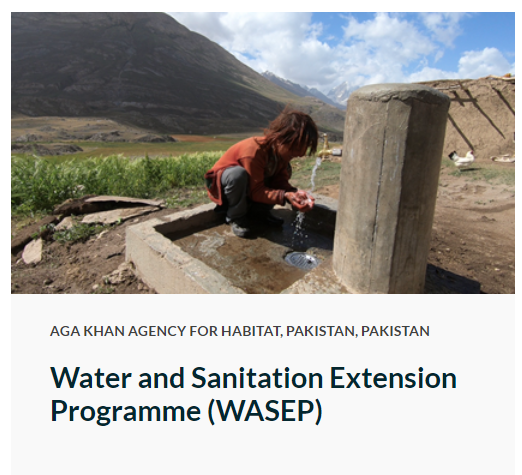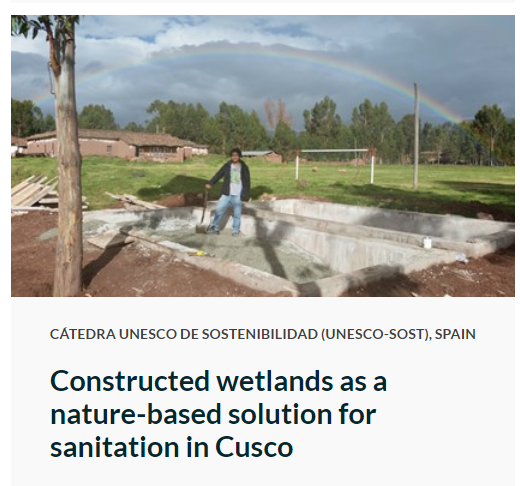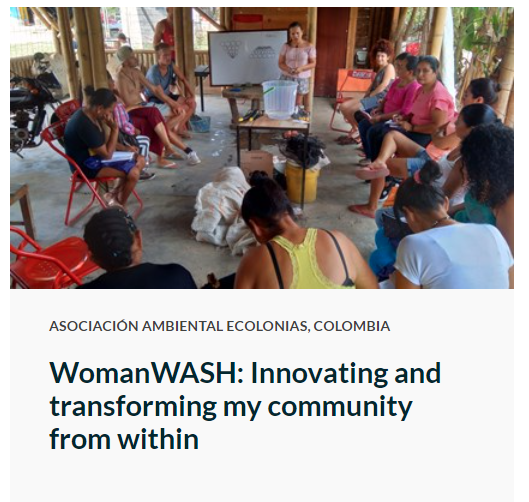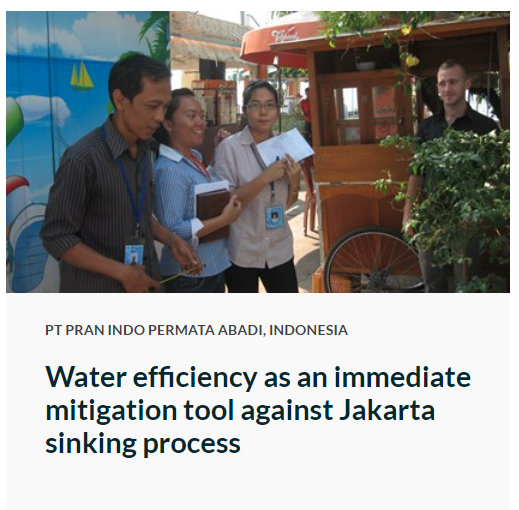World Toilet Day is about taking action to tackle the global sanitation crisis and achieve Sustainable Development Goal 6: water and sanitation for all by 2030.
GWP and Partners launched the Water ChangeMaker Awards in 2020 to make visible the teams and organisations who shape water decisions that build climate resilience. This was done by collecting change journeys, to learn from and to celebrate those who make things happen. We received over 350 submissions. To mark 19 November, we highlight five of the change journeys with particular focus on Water, Sanitation and Hygiene (WASH).
The Faecal Sludge Field Laboratory – enabling informed decision-making for environmental protection and public health
The cholera outbreak following the 2010 earthquake in Haiti powerfully demonstrated the urgent need for faecal sludge treatment solutions in emergencies, especially as – exacerbated by climate change – more and more disasters occur in urban contexts. This is why in the disaster’s aftermath a number of leading WASH organisations, e.g. Oxfam and the International Federation of Red Cross and Red Crescent Societies (IFRC) got engaged in this endeavour. The development of respective field-applicable laboratory equipment and methods to enable process and quality control was neglected. Since the analytical proof of faecal sludge treatment efficiency was seen as crucial to ensure environmental protection and public health, the Austrian Red Cross (AutRC) decided to take on this challenge.
Constructed wetlands as a nature-based solution for sanitation in Cusco
In this project, a wetland system was built to treat wastewater from a school of 60 children in Peru; they could also use the recycled water for watering plants and construction purposes. The project leader’s story: “In 2017 I visited a small rural school in Cusco, I noticed that the children had to use a bathroom in poor conditions, with sewage dumped into a water stream close to the school. Similar situations were repeated in the rest of the rural community, affecting the environment. At that moment I started my journey. I contacted Professor Rosario Pastor from the UNESCO Chair of Sustainability-UPC. With her support I designed small but meaningful projects. The initiative consists of creating wetlands for wastewater treatment in key places of the Anta District that solve sanitation problems and also serve as an example for the authorities on how nature-based solutions work.”
Water and Sanitation Extension Programme (WASEP)
 WASEP was instituted with an integrated approach to address the multi-dimensional context-specific issues identified in the water sector. In Pakistan, WASEP has provided access to clean drinking water to more than 68,000 households in 773 settlements covering around 0.56 million people, led the construction of over 22,000 latrines, and initiated an extensive behavioural change communication campaign with 6,611 community health and hygiene awareness-raising sessions and 6,635 health sessions in schools, raising awareness amongst 154,000 community members and 98,000 students, respectively. WASEP’s remarkable success is reflected in multiple fronts. For instance, communities’ average medical expenditure was reduced from PKR 3,070 to PKR 118; the average travel time to fetch water decreased from 50 to 2 minutes; children in 67% of households increased their attendance in school due to a reduction in the occurrence of diarrhea; and 19% had the same experience due to increased water availability.
WASEP was instituted with an integrated approach to address the multi-dimensional context-specific issues identified in the water sector. In Pakistan, WASEP has provided access to clean drinking water to more than 68,000 households in 773 settlements covering around 0.56 million people, led the construction of over 22,000 latrines, and initiated an extensive behavioural change communication campaign with 6,611 community health and hygiene awareness-raising sessions and 6,635 health sessions in schools, raising awareness amongst 154,000 community members and 98,000 students, respectively. WASEP’s remarkable success is reflected in multiple fronts. For instance, communities’ average medical expenditure was reduced from PKR 3,070 to PKR 118; the average travel time to fetch water decreased from 50 to 2 minutes; children in 67% of households increased their attendance in school due to a reduction in the occurrence of diarrhea; and 19% had the same experience due to increased water availability.
WomanWASH: Innovating and transforming my community from within
This project is about women entrepreneurship in Colombia, and how to make waste into a resource. The project leader’s story: “After a three-month volunteering period teaching women to read and write, I decided to stay in Las Colonias, providing comprehensive environmental support to local women who wanted a cleaner and more dignified community. In 2017, I asked for help from an NGO research group ascribed the Polytechnic University of Catalonia, with whom we carried out a complete analysis of the site’s environmental and sanitation problems. In the same year we initiated discussions with two public entities in the city to form a coalition to try to address the region’s issues. In 2018, we formed ECOLONIAS, a collective of local women dedicated to environmental awareness, solid waste management and the sale of recyclable material.
Water efficiency as an immediate mitigation tool against Jakarta sinking process
This story is about a hotel in Jakarta taking responsibility for recycling their wastewater to reduce their overall water footprint. PT Pran Indo Permata Abadi (P.I.P.A.) selected a partner that declared a strong commitment to sustainability; one of the biggest hotels in Jakarta, managed by one of the top hospitality leaders in the world. P.I.P.A. addressed financial competitiveness by highlighting hidden costs and risks, linking water sustainability to business security and to the Sustainable Development Goals targets. The project leader said: “We spoke the same language. Our comprehensive and transparent approach allowed us to demonstrate the true cost of water and exposing hidden costs. Against the market trend, we developed a “demand-management” strategy focusing on over-consumption and underground water over-extractions. To reduce underground water extraction, we optimized their consumption and engineered their transition towards alternative water sources.





